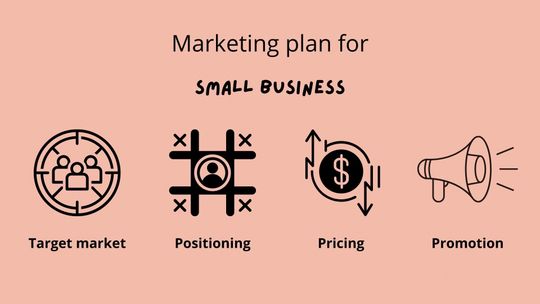

A marketing plan is a crucial resource for any small business. Essentially, it helps you identify the market needs your product or service meets, how your product is different from competitors, and who your product or service is for. It is basically a roadmap for how you communicate with your target audience to promote your products or services.
A marketing plan should be customized to fit your business; however, all marketing plans contain four key functions. It should describe how you will segment your target market, how you will position your products or services compared to your competition, what your pricing strategy will be, and how you will effectively reach and influence your customers.
The target market
A key mistake is thinking that “anyone” is your buyer. It’s important to identify who is your target. Your target market is a group of customers that have similar needs for a product or service, money to purchase the product or service, and willingness and ability to buy it. Without a defined target audience, the money you spend on marketing will be a waste.
Once you identify your target market you need to segment it into one primary market where you will focus most of your energy and resources. To segment your target you will need to pay attention to demographic, geographic and psychographic data and how that people behave.
Market Positioning
Positioning is the image you create of your product or services in the mind of your target.
Your goal is to define your unique selling proposition to create an image that’s unique, differentiated, and definable in the mind of your customers. And it’s important that every marketing material and your communications support this position image you have created.
Pricing Strategy
Developing the right pricing strategy helps you better market your product. Here are some key questions to ask yourself about your pricing:
What are reasonable margins to make a profit and cover the costs of production and development?
- How are the economic situation and economic trends?
- What is the level of market demand and competition?
- What are your marketing and distribution costs?
- What’s the income range of your target?
Promotion
Promotion is the activity of informing, persuading, and influencing your customers’ purchase decisions. There are four general types of promotional activities:
- Advertising
- Sales promotion
- Publicity and Public Relations
- Personal Selling
If you’re a small business owner with little experience in marketing, this might all sound like a foreign language to you. It doesn’t matter what’s the stage of your business, contact us we are here to help you strategize, plan and execute.




